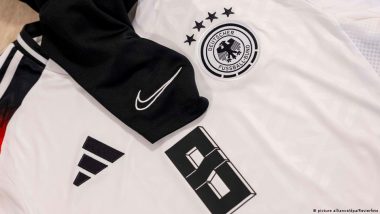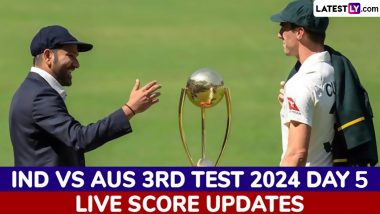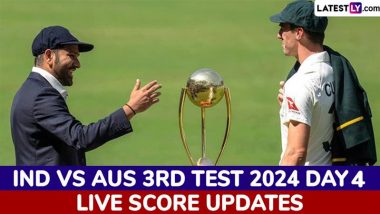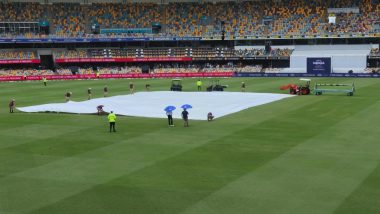The German football association's decision to choose Nike over Adidas from 2027 caused a stir across the country. But what does the deal say about the sports brand market?In the aftermath of the German FA's (DFB) decision to move on from long-standing German partner Adidas, it's clear that finance was the overriding factor.
The decision has made waves in Germany, with even politicians commenting. Economically speaking though, the deal is logical.
Also Read | IPL 2024 Second Half Schedule Revealed, Final to Be Held in Chennai on May 26.
Not only were Nike reportedly willingly to offer a lot more than Adidas for the deal, but the former's profits dwarf that of its German rival. For 2023, Adidas registered a loss of €75 million ($82 million), whereas Nike's profit was around €20 billion. The difference is undeniable, and even when Nike's shares slumped at the start of 2024, CEO John Donahoe cited the recent deal with the Germany team as part of the company's plan to "make the adjustments needed to win", adding the company was "deeply honored and privileged" by the win in Germany.
Strategic bidding
Professor Henning Vöpel, a sports economist at a European-policy think tank Centre for European Policy (CEP), thinks there is more to consider though.
"I guess an important aspect is the fact that market has turned into an oligopoly with specific incentives," Vöpel told DW. "Maybe Nike won by accident."
Vöpel theorizes the reduced number of suppliers in the market changes things, as does the fact the bidding process led to strategic bidding.
"Perhaps Nike suspected Adidas absolutely wanted it, for reasons of tradition and so on, and they wanted to make them believe that a high bid would be submitted," Vöpel said. "Or, Adidas formed the expectation that the DFB would choose them anyway due to political and public pressure, and that prompted them to make a bid that was possibly lower than what they could or would have offered."
Vöpel believes this could be why the two bids were reportedly so far apart. Reportedly, Nike offered €100 million for the deal – double what Adidas put on the table.
"This is actually inexplicable," Vöpel said. "The fact there is obviously a difference that has left [the DFB] almost no choice suggests someone miscalculated in their considerations."
Whether someone paid too much or too little, the impact on the DFB cannot be understated. Financially, the association is largely dependent on the success of the men's team, and without that they have struggled. As public broadcaster ARD reported, in Germany's three poor tournament years (2018, 2021 and 2022), the DFB made just €27 million in bonuses. Compare that to the years of success (2010, 2012 and 2014) where €61 million was earned and it's clear how much is missing. Add to that the on-going tax evasion scandal and a new central hub in Frankfurt that cost twice as much as expected, and the Nike deal goes from being just the logical choice to an absolutely necessary one.
Global appeal
Beyond the financial appeal of choosing Nike, lies the lure of Nike's global brand. The NBA and the NFL's uniforms are provided by Nike. Michael Jordan's "Air Jordans" belong to Nike, and Serena Williams has a Nike collection. Adidas has it's own stars too, but the truly international reach of Nike currently is undeniable.
"The DFB is also looking for an internationalization strategy in marketing, and I can imagine that Nike could provide a bit of a global tailwind; even the Nike ecosystem could be more interesting worldwide, across sports, than Adidas," Vöpel said. "I think it's possible that such considerations could have played a role."
All in all, Nike look to have seized the moment, recognizing Adidas' current frailty and the DFB's desperation and striking a deal that sent waves across the industry and the sport of football.
"They're making a bid that will definitely push their rivals out, in perhaps the only field where they can still become heir-worthy, so to speak," Vöpel said.
"Such strategic considerations could have played a role in rationalizing the decision to spend 30 million knowing you'll give your opponent the lockout, so to speak, in this economic situation. These are precisely the competitive incentives that arise under such constellations because it's such an emotionalised market."
Edited by: Chuck Penfold
(The above story first appeared on LatestLY on Mar 25, 2024 08:40 PM IST. For more news and updates on politics, world, sports, entertainment and lifestyle, log on to our website latestly.com).



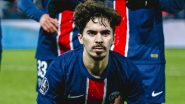
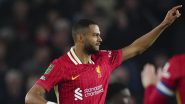








 Quickly
Quickly








